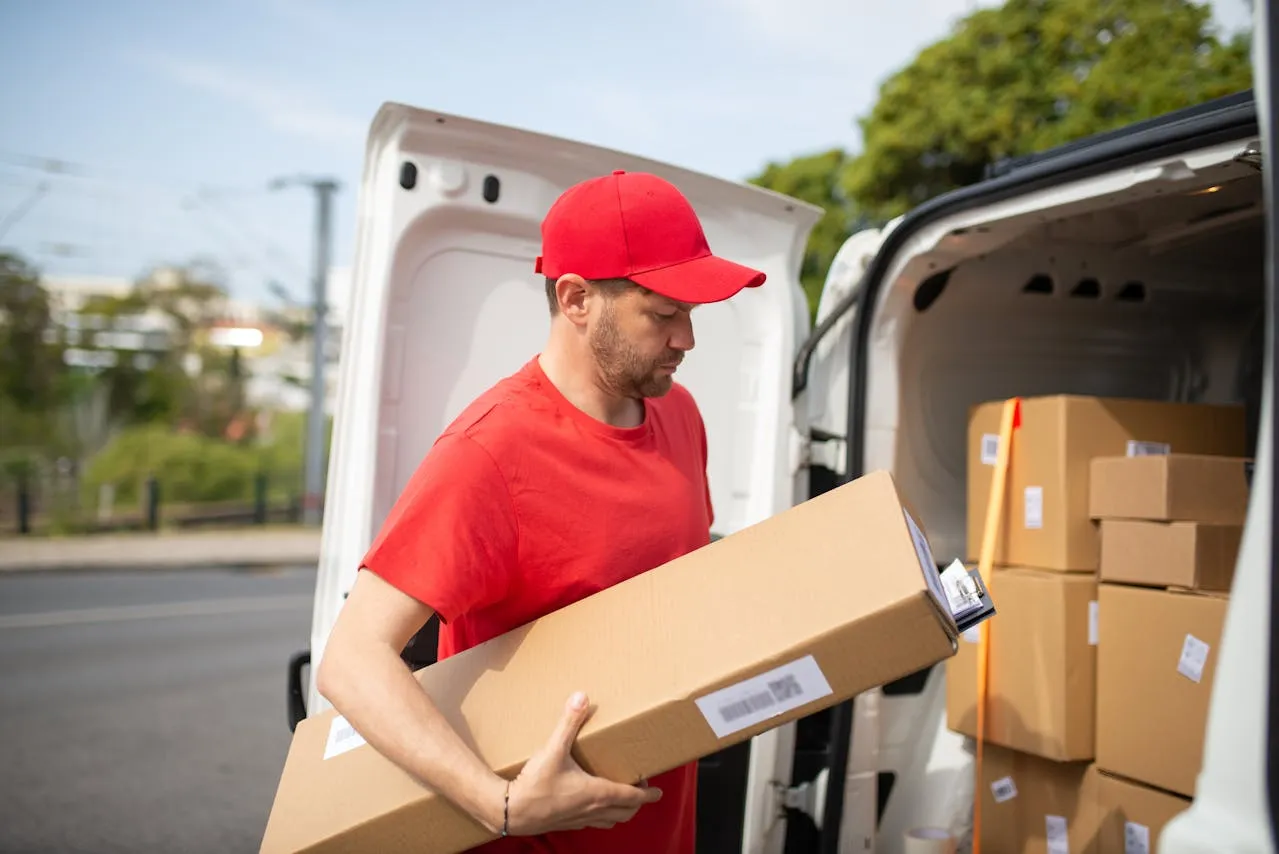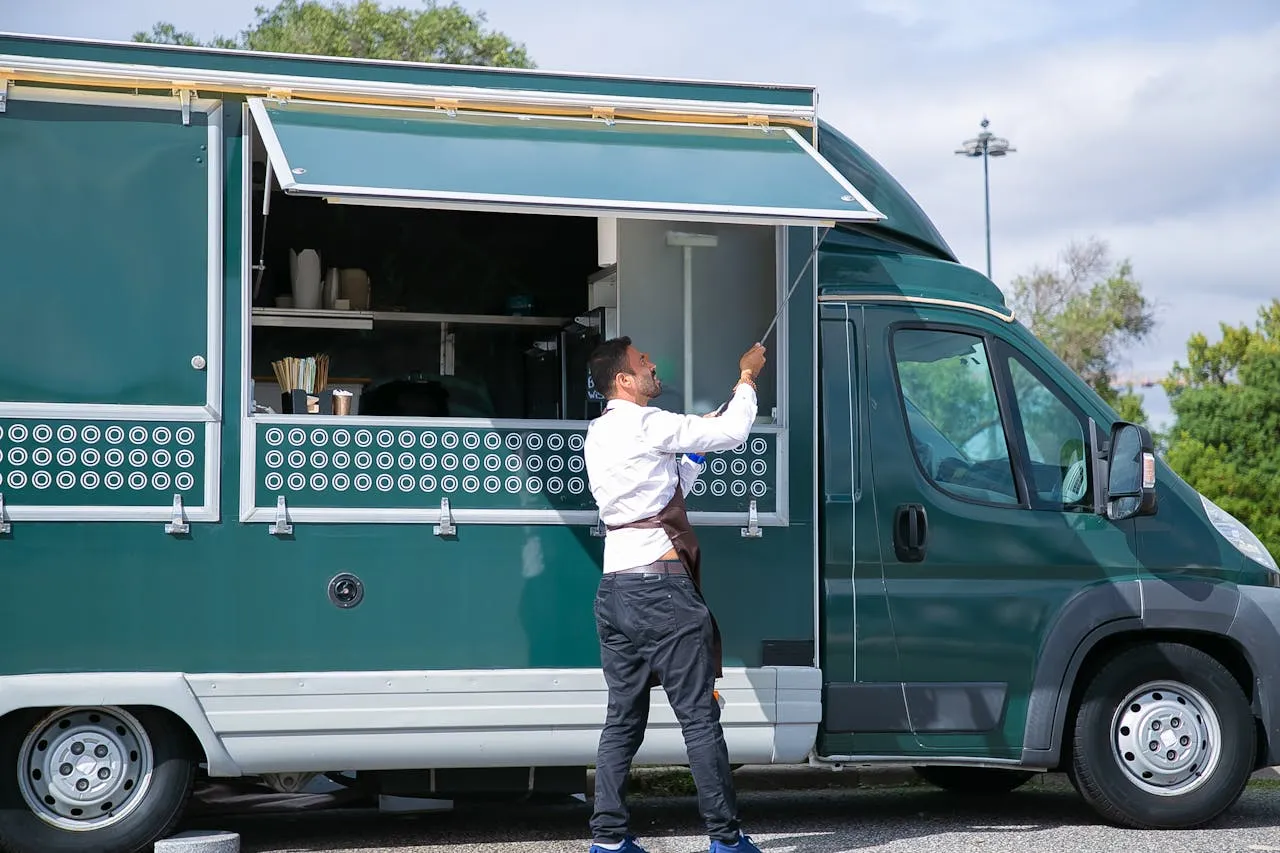- Vans = secure and organised. Great for service trades needing lockable storage, shelving, and space for branding.
- Utes = tough and versatile. Perfect for bulky loads, off-road worksites, and doubling as a personal ride.
- Finance makes it doable. Asset finance helps you get the right vehicle now without draining your cash flow.
Choosing the right set of wheels for your trade isn’t just about hitting the road in style. It’s about finding a vehicle that works as hard as you do. For small business owners, and tradies in particular, vans and utes are the two heavy-hitters.
Both can haul your equipment, get you from site to site, and double as an everyday drive, but the way they do it is very different. So how do you know which one’s the smarter fit for your business?
What's the difference between utes and vans?
Utes and vans are two common types of commercial vehicles, particularly among tradies and small business owners who rely on them for transporting tools or equipment.
Utes, or utility vehicles, feature an integrated passenger cab and an open rear cargo tray. Known for their versatility, all-terrain strength, and towing capability, they're a go-to for hauling bulky or awkwardly shaped items and handling rough worksites with ease (and safety).
It's no surprise that utes are among Australia’s favourite vehicles; in fact, in 2024, the top-selling models were the Toyota HiLux and Ford Ranger utes, followed by the Isuzu D-Max [1].
Vans, on the other hand, come with a fully enclosed cargo space. Built with practicality and organisation in mind, these vehicles thrive in urban settings and are a popular choice in service-based trades that need a mobile, lockable workspace.
Why might a van be the right choice for your trade business?
Best suited for: Electricians, plumbers, IT or service techs, and mobile businesses that carry lots of smaller gear
Pros
- The fully enclosed cargo area keeps your tools and materials protected from the elements and theft (and means you don't need to unload after a long day of work)
- Many vans are (or can be) fitted out with shelving, drawers, and lockable compartments—you can conveniently customise the interior to keep your tools organised and easily accessible
- Vans offer ample interior space for transporting large volumes of smaller items
- The exterior of vans is a great spot for branding and advertising, so you can use yours as a moving billboard
Cons
- Side and back access is trickier since you have to open doors and manoeuvre around the van
- Vans are bulky, less nimble vehicles, and the learning curve to driving (and parking) them can be steep
Why might a ute be the better option for your trade business?
Best suited for: Builders, landscapers, carpenters, and trades that haul bulky gear
Pros
- It's easy to load and access your cargo from the sides and back, thanks to the open tray design
- The loading height capacity is higher, which is handy if you regularly transport large or awkwardly shaped gear
- Utes have a strong off-road capability, as many are built for tough terrain, particularly 4WD models
- Utes are suitable for both business and personal use, which makes them a good choice for tradies looking for a versatile, everyday vehicle
Cons
- The open tray design means your tools and materials are vulnerable to weather and theft (there are solutions to this, like a canopy or retractable roller shutter, but they restrict height capacity)
- Some utes aren't as comfortable for long drives, something to consider if you're on the road a lot or travel with multiple passengers
How do the costs of vans and utes compare for small businesses?
Both utes and vans come with upfront and ongoing costs. Generally speaking, utes have a higher purchase price (especially 4WD models) and may incur higher insurance premiums. They often use more fuel in urban settings, and maintenance can be pricier due to off-road components.
So, vans can be more cost-efficient than utes, with a lower initial investment, better fuel economy in the city, and simpler maintenance.
Of course, there are different models and makes of both vans and utes, and no matter what you're after, there's likely an option to fit your budget. And if the upfront price tag feels like a roadblock, asset finance helps you get the wheels you need now without having to pay upfront. Let us explain.
Get the van or ute your business needs with Valiant
The right finance can take the sting out of a big purchase like a van or ute and free up your cash flow for other parts of your business. Your main options here are:
- A business car loan, or chattel mortgage, which allows you to purchase a vehicle for your business while spreading the cost over time. You own the vehicle from day one, but it's used as security for the loan.
{{first-banner}}
- An equipment lease agreement, which lets your business use equipment in exchange for periodic repayments instead of buying it upfront, which means you don't own the asset. At the end of the lease term, you typically have the option to return, upgrade, or buy it.
{{second-banner}}
Whether you opt for a van or a ute, Valiant can help you decide whether buying or leasing is the smarter move for you and access the funds you need for your new piece of equipment.
Simply tell us a bit about your business goals and what you need a vehicle for. From there, we’ll match you with the right lenders out of a panel of 90+ bank and non-bank partners.
Once you approve your quote, we take care of your business loan approval so you can get the funds you need in as little as 24 hours. Simple, fast, and hassle-free.
Wrap-up: Ute vs van—what’s right for you?
There's no right answer to this debate. The right choice depends on what you value and need for your business. In a nutshell:



